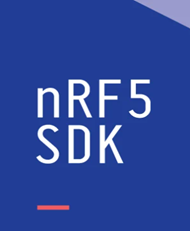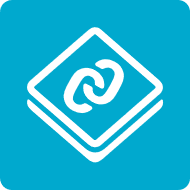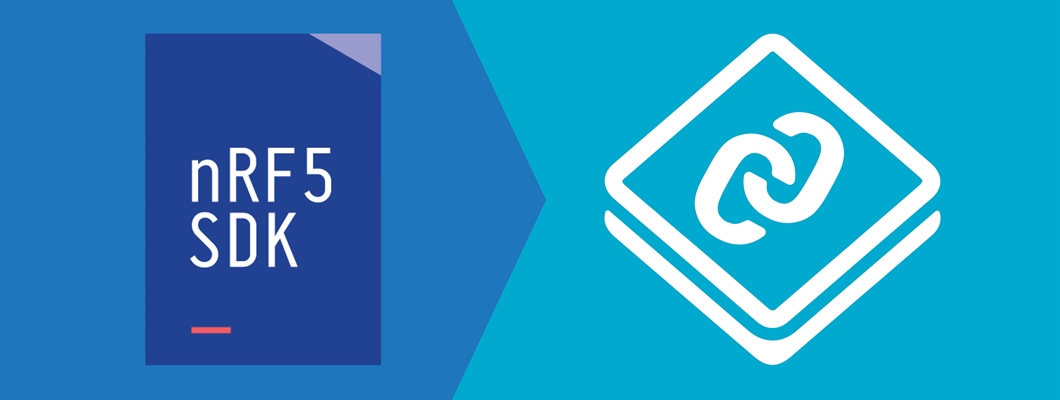Last Updated: 13th May 2024.
Table of Contents
Introduction
This article explains the state of the successful nRF5 Software Development Kit (SDK) and why we are moving over to the scalable and future-proof nRF Connect SDK.
nRF5 SDK Brief

The nRF5 SDK has been the foundation for Nordic’s Bluetooth Low Energy (LE) offering since 2012. It is used in millions of consumer end devices and it is well-received as one of the best SDKs, if not the best, in the world of Bluetooth LE. The nRF5 SDK is a standalone software package supporting the nRF51 Series in the beginning, with current versions supporting the nRF52 Series. It offers developers a wealth of varied modules and examples right across the spectrum including numerous Bluetooth LE profiles, Device Firmware Update (DFU), libraries, and driver support for all peripherals on all nRF51 and nRF52 Series devices. It is worth noting that the nRF5 SDK is natively a “bare-metal” SDK which does not depend on an RTOS, however, the SDK also provides porting examples for some real-time operating system (RTOS) variants like FreeRTOS.
While the nRF5 SDK supports Bluetooth LE, there are multiple SDKs based on it available for different wireless protocol technologies. nRF5 SDK for Thread and Zigbee, nRF5 SDK for Mesh and nRF5 SDK for Homekit.
The Bluetooth LE stack used by the nRF5 SDK is called SoftDevice. It is a full stack including both host and controller layers in one binary file. There are several variants of SoftDevices containing different feature sets. SoftDevices are regarded as the most stable and the most popular Bluetooth LE stacks in the market as they provide cutting-edge performance and outstanding interoperability.
As can be seen in the nRF5 SDK 17.1.0, we are still supporting the nRF5 SDK in maintenance mode. This means that bug fixes and security updates will be available as needed. However, support for new features beyond Bluetooth LE 5 will not be added to the nRF5 SDK. For instance, Bluetooth Direction Finding, Bluetooth LE Audio, and so forth are not supported and will not be supported in the nRF5 SDK.
nRF Connect SDK Brief

The nRF Connect SDK was made publicly available in 2018. It contains support and features for our devices and communication protocols including but not limited to Bluetooth LE, Bluetooth mesh, Matter, Zigbee, Thread, ANT (on the nRF5340 & nRF52840), LTE-M/NB-IoT, and GPS. nRF Connect SDK is distributed with a scalable RTOS and supports the nRF91, nRF53, and nRF52 Series. It integrates the Zephyr Real-Time Operating System (RTOS) and a wide range of applications, samples, application and networking protocols, libraries, the MCUBoot – bootloader, hardware drivers, and more.
The Bluetooth LE stack is distributed differently in nRF Connect SDK compared to nRF5 SDK. The controller layer of the popular SoftDevice, with its best-in-class features, is now separately available as the SoftDevice Controller. While for the host layer, it now uses the open-source Zephyr Bluetooth Host. This separation offers a new level of flexibility to configure the Bluetooth LE stack for specific applications and better integrate with differentiating product features. The SoftDevice Controller still provides the multi-protocol support that was used in SoftDevices to run Bluetooth LE concurrently with other technologies. The SoftDevice Controller has a valid Bluetooth listing for each nRF Connect SDK release, facilitating a straightforward Bluetooth product qualification process.
It is also worth mentioning that the nRF Connect SDK includes another option for the Bluetooth LE controller, called the Zephyr Bluetooth LE Controller.
While Nordic does maintain the Zephyr Bluetooth LE Controller function on our devices, the SoftDevice Controller is supported, maintained and tested in the same way as the full SoftDevice stack has been since 2012 and is the default and recommended option for product development with nRF Connect SDK.
The nRF Connect SDK is our main SDK from now onward. It will include support for new features such as Bluetooth Direction Finding, Bluetooth LE Audio, and so forth. The SDK is distributed on GitHub which opens the doors for all forms of collaborations and enhances the speeds at which patches, and updates can be made available to customers.
All source code is pushed to GitHub during development and merged once it has been tested and proven in our Continuous Integration system. Everyone has access to the latest developed code in the main repository in addition to the “Tagged” versions that are tested in our rigorous release testing process. While only nRF Connect SDK versioned Tags are supported for product development, access to the latest development source code does give the opportunity to experiment with new features or adopt useful patches during a development cycle before a Tagged version can be taken into use.
Why are we moving to the nRF Connect SDK?
With the increased hardware capabilities in the new generation of devices such as the nRF91 and the nRF53 Series, and due to the demand from product makers looking to reduce design time and increase code re-use between projects, it became crucial to adopt an RTOS natively. Therefore, the nRF Connect SDK was born as Nordic’s first fully RTOS-based SDK.
The nRF5 SDK is mainly focused on Bluetooth LE, ANT, and 2.4 GHz proprietary. While for Thread, Zigbee, and Bluetooth mesh, a separate flavor of the nRF5 SDK was needed per technology.
On the other hand, the nRF Connect SDK offers one configurable code base for all device series and technologies (Bluetooth LE, 2.4 GHz proprietary, Bluetooth mesh, Matter, Zigbee, Thread, ANT (on the nRF5340 & nRF52840), LTE-M/NB-IoT, GPS, and several more). Combining multiple protocols in a single device is much easier now with nRF Connect SDK: one code base for all our products. Before, we had a separate SDK per technology. Now, with nRF Connect SDK it is all in one place.
The distribution model used by the nRF Connect SDK is through a public GitHub repository. This model is highly agile and enables us to provide updates and patches much faster than before. In addition to opening the doors for all forms of collaborations with 3rd parties, such as the vibrant and active Zephyr project members.
Summary table
The table below compares the nRF5 SDK with nRF Connect SDK.
|
Feature |
nRF5 SDK |
nRF Connect SDK |
|
First release date |
2012 |
2018 |
|
State |
Maintenance only |
Active |
|
Official documentation |
||
|
Latest Bluetooth LE version supported |
5 |
Latest |
|
Zigbee support |
Separate SDK |
Yes |
|
Thread support |
Separate SDK |
Yes |
|
Bluetooth mesh support |
Separate SDK |
Yes |
|
HomeKit integration |
Separate SDK |
Yes |
|
Matter support |
No |
Yes |
|
Find My Network integration |
No |
Yes |
|
ANT support |
Yes |
Yes (on the nRF5340, nRF52840) |
|
2.4 GHz proprietary support |
Yes |
Yes |
|
LTE-M/NB-IoT support |
No |
Yes |
|
Native RTOS support |
No |
Yes |
|
nRF91 Series support |
No |
Yes |
|
nRF53 Series support |
No |
Yes |
|
nRF52 Series support |
Yes |
Yes |
|
nRF51 Series support |
Yes* |
Partial |
|
Bluetooth LE stack options |
SoftDevice |
SoftDevice controller + Zephyr host OR Zephyr controller + Zephyr host |
|
Distribution model |
||
|
Native version control/collaboration |
No |
Yes |
*Use nRF5 SDK v12.3.0 for nRF51 Series.
To learn about some of the technical differences between nRF5 SDK and nRF Connect SDK, specifically concerning memory footprint and power consumption, we recommend reading the Blog Post: Debunking misconceptions: A technical analysis of nRF5 SDK and nRF Connect SDK.
FAQ
When to use the nRF Connect SDK?
- For all new designs.
- For the nRF91 Series and nRF53 Series devices.
When to use the nRF5 SDK?
- For nRF51 Series (Use nRF5 SDK v12.3.0 for nRF51 Series).
- Your nRF52-based device is already based on the nRF5 SDK and you do not plan to support any Bluetooth LE features beyond version 5.
Is the nRF5 SDK deprecated?
No. The nRF5 SDK is not deprecated and it will be maintained for the foreseeable future, however, nRF5 SDK will not support new features beyond Bluetooth LE 5.
How do I download nRF Connect SDK?
The recommended method to download the nRF Connect SDK is through the Toolchain Manager on Windows, MacOS, and Linux.
What is the state of the nRF5 SDK for Thread and Zigbee?
The nRF5 SDK for Thread and Zigbee is deprecated and will not be upgraded. For new projects, use nRF Connect SDK.
What is the state of the nRF5 SDK for Mesh?
The market-proven nRF5 SDK for Mesh is also in maintenance mode. It supports Bluetooth mesh up to 1.0.1. New designs should use the nRF Connect SDK.
What is the state of the nRF5 SDK for HomeKit?
It is deprecated and will not be upgraded to HomeKit Accessory Development Kit v5 (ADK v5) or any future version of the ADK. It is not possible to obtain a HomeKit certification for a new product using the nRF5 SDK for HomeKit, as it is based on the deprecated ADK v4. Use the nRF Connect SDK.
Enjoyed this? Subscribe to DevZone blog email notifications and be the first to know about new posts!



Top Comments
-

jcondon
-
Cancel
-
Vote Up
0
Vote Down
-
-
Sign in to reply
-
More
-
Cancel
Comment-

jcondon
-
Cancel
-
Vote Up
0
Vote Down
-
-
Sign in to reply
-
More
-
Cancel
Children